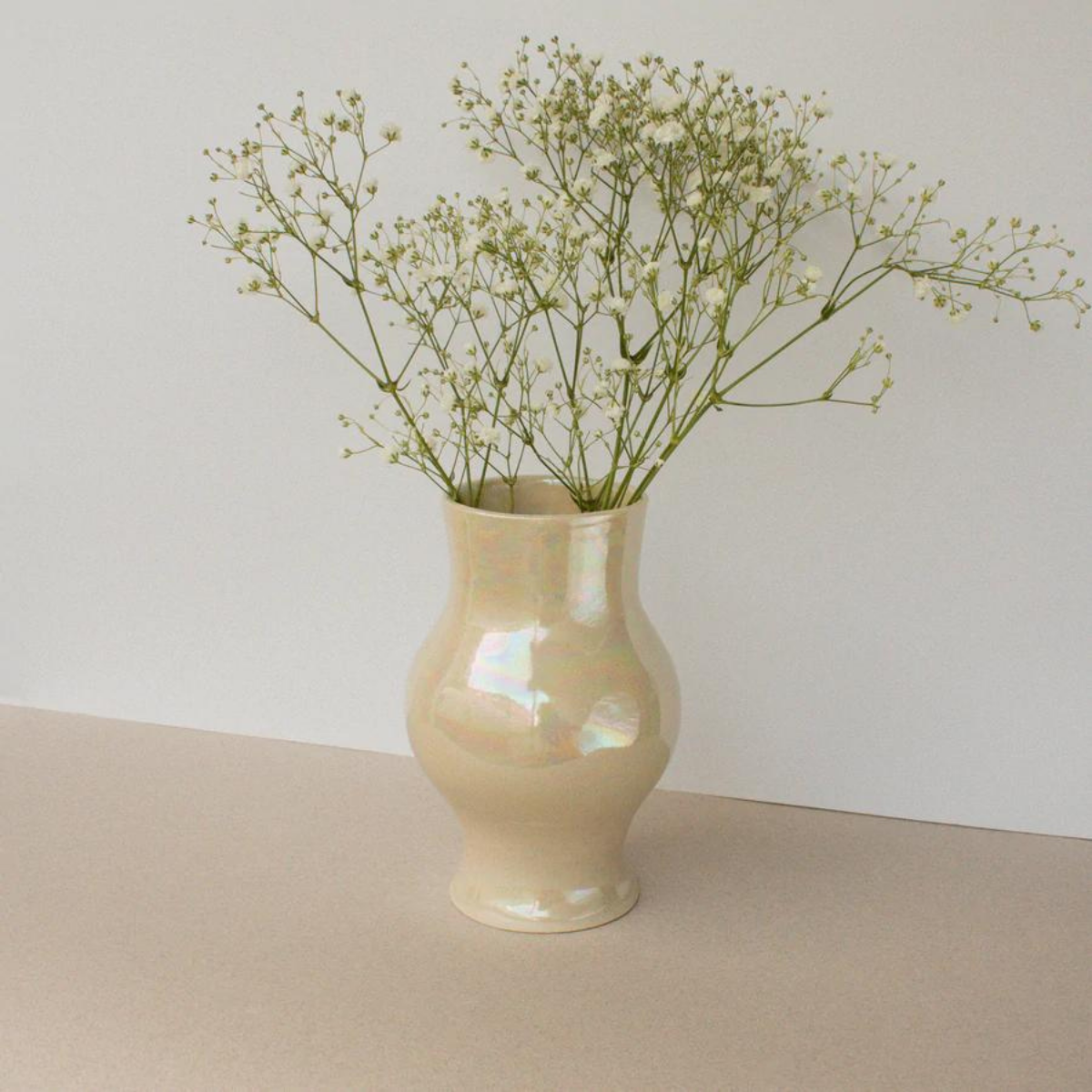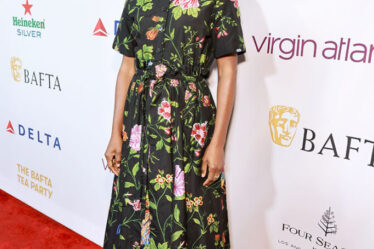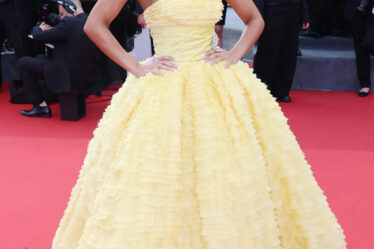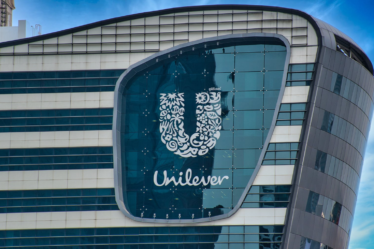
Images and Article from www.glamour.com.
No one ever said starting your own business was easy, but being a female or female-identifying entrepreneur comes with its own set of challenges and expectations. That’s what makes International Women’s Day the perfect opportunity to spotlight women-owned businesses in your orbit—and discover some that you may not already love. Not only is it a day to celebrate women’s impact on society and culture, but it’s also time to take stock of the achievements women have contributed financially. And in this economy? That’s something worth recognizing.
The pandemic accelerated The Great Resignation, which saw millions of people around the world quit their jobs because of burnout. But leaving an unfulfilling career is nothing new—especially not for women who have been starting up businesses at five times the national average since before the pandemic. (A trend that’s only sped up since March 2020.)
One thing making it easier for female entrepreneurs to launch their own brands? E-commerce platforms like Etsy, Depop, and Shopify. Think of them as the ecosystem these brands live in: They can power founders’ visions by giving them access to the tech and digital know-how needed to sell their products online, all the while scaling on their own terms. With their global reach, it’s also thanks to these companies that you can shop and discover independent designers and brands that resonate with you no matter where you are in the world.
These platforms vary in appeal. Etsy is beloved by creatives eager to turn a hobby or passion project into a side hustle. Depop (now actually owned by Etsy) speaks directly to Gen Z fashion-obsessives itching to flip luxury designer clothing to anyone who’ll pay the premium. But the direct-to-consumer space—which has birthed now-iconic brands like Allbirds, Glossier, and Outdoor Voices—is powered largely by another shopping platform altogether: Shopify.
Shopify was founded in 2006 in Ottawa, Canada with the intention of giving aspiring business owners the tools and access they need to start and maintain their own brand. That means everything from website design and customer acquisition to order fulfillment and round-the-clock tech support. The platform powers millions of merchants across more than 175 countries, with over half being women-owned, according to a recent in-house survey, Mel Ho, head of marketing at Shopify’s Shop app tells Glamour.
One of these women is Diarrha N’Diaye-Mbaye, founder of beauty brand Ami Colé. She explains to Glamour how a platform like Shopify allows her to focus on what matters, like providing customers with a sleek user interface and a back-end that’s equally seamless to navigate and maintain. She’s not the only one who feels this way. Lisa Buhler, founder of Lisa Says Gah, tells Glamour she’s able to home in community building with the confidence that her website is complementing her storytelling.
When it comes to supporting independent labels, your own coin makes an impactful difference that directly attributes to their success and long-term growth. Ahead, you’ll find a curated list of some of our favorite women-owned brands worth shopping this International Women’s Day—and year-round—from small-batch ceramicists and jewelry designers to creatives changing the game in the food and beauty space.
Founded by Paloma Lanna, this slow fashion brand-slash-art collective is based in Barcelona, Spain, and counts editors, fashion influencers, and A-listers like Kendall Jenner and Kaia Gerber as fans. Its pieces put a modern spin on nostalgic trends—think slinky ’90s dresses, gauzy knits, and printed mesh tops.
Lisa Buhler’s penchant for discovering new talent and what she calls, “gah”-worthy pieces (see: lots of color and print) is the reason why so many cool girls love shopping here. You’ll discover all kinds of under-the-radar brands at LSG, like House of Sunny, Paloma Wool, and Tach Clothing—just before they hit mainstream. In addition, don’t miss its own in-house designed pieces, which are part of Lisa Says Gah’ new era.
Ceramic enthusiasts will instantly fall in love with Rachel Saunders’ pieces. All her ceramics are made in small batches, from traditional vases and mugs to unique items like a shelfie for your glasses and skincare, and a tiny phone home. Saunders, who founded her online business in 2015 has this to share with anyone with similar ambitions: “[Everything is] possible—even without all the qualifications we’ve been told we need. If you have a business idea that can add value to the world and your own life, do what you can to take action on it, more than ever bringing your dreams to life is possible and needed.”
You can thank Rachel Hochhauser and Jena Wolfe for making puzzles you’ll want to stay in all weekend for. The brand’s jigsaw puzzles—done up as fruity arrangements, decadent tablescapes, and zodiac-themed still lifes—are mini works of art you’ll want to frame on your wall once completed. You probably could though, since they’re printed on thick stock and high-quality paper.
Need a serotonin boost? Brooklyn-based Ellen Van Dusen’ Dusen Dusen home decor brand has all the feel good accessories you need for a colorful home—from eclectic pillows to groovy bed sheet sets and cute desk essentials. You can find Dusen Dusen stocked at buzzy New York City boutiques alongside mega retailers like Nordstrom and Shopbop.
Through a set of premade seasonings that are as delicious as they look, sister duo and co-founders Vanessa and Kim Pham—daughters of Vietnamese refugees—launched Omsom to create an easy and accessible way to incorporate Asian flavors into your cooking. They also wanted to build a community while telling an authentic brand story: “A lot of folks expect founders—especially female founders—to be perfect, sanitized versions of themselves; presenting perfectly curated views of what it’s like to be a small business owner,” Kim Pham tells Glamour. “Vanessa and I work every day to show up fully as ourselves (both online and offline) because we think it is important to show that there is no one right way to be a small business leader. I am personally really proud that I’m slowly becoming the figure I so badly wished to see when I was growing up as a queer Southeast Asian woman.”
What started as a design blog by Justina Blakeney in 2009 has since grown into a burgeoning lifestyle brand and store known as The Jungalow. Whether you’re looking for designs by Blakeney or unique pieces from artisans around the world, it’s a one-stop shop for eclectic home decor and art.
Passionate about holistic health, Trinity Mouzon Wofford launched Golde in 2017 with the intention of making the wellness space more inclusive and accessible. In the last five years, her matcha and turmeric-based lattes have gained national appeal. You can find her powdered tonics and superfood face masks at major retailers like Free People, Madewell, and Thrive Market.
Young Frankk has the chunky chain sets and sculptural earrings you’ll want to wear every day. The jewelry brand was founded by Christine Young, a first-generation Korean-American and trained painter who wanted to create wearable art. According to its website, each piece is also created with recycled or recyclable materials.
Campy jewelry lovers will have seen Éliou’s colorful chokers and stackable bracelets around—even Harry Styles is a fan. The brand, which is helmed by Miami natives and besties Duda Teixeira and Cristina Mantilla, launched in 2018—and became an Instagram sensation almost overnight. Their designs incorporate elements of the natural world—cowrie seashells, freshwater pearls, colorful evil eyes, and rainbow beads—that look and feel cool to wear.
This demi-fine jewelry brand from Vancouver follows a “by women for women” philosophy. Its designs are whimsical but never kitschy, and cast by hand using recycled sterling silver or recycled bronze.
Rooted in Latinx heritage but decidedly modern in its formulations and packaging, Ceremonia is fashion consultant and influencer Babba C. Rivera’s first foray into the world of beauty. Rivera tells Glamour that she started her clean hair-care brand in the midst of a global pandemic, while pregnant, and then went to market with Aceita de Moska (a luxurious scalp remedy) with her newborn in the Newborn Intensive Care Unit (NICU). This was October 2020—far from the journey she expected. But to budding entrepreneurs out there who may be “waiting” for the right moment, she says this experience taught her that “there’s no such thing as good timing, you somehow just have to decide to make it great timing.”
A newcomer to the beauty scene, Ami Colé is already making waves for her makeup, which was designed for melanin-rich skin. Having started with just a skin tint, highlighter, and lip oil, founder Diarrha N’Diaye-Mbaye has since expanded to key categories like mascara and concealer, which come in sheer hues and clean formulas for the ultimate no-makeup makeup look. She tells Glamour it took her five years to materialize her dream brand. “During those times, I was frustrated, sometimes discouraged, but never let go of the vision.” Her message to similarly ambitious women, especially those who may have grown up in underprivileged areas? “The dream is possible if you work with fear versus against it.”
On a mission to “redefine the way women look and feel in their underwear,” Cuup’s minimalist lingerie has been a Glamour-editor essential for years now. Co-founded by Abby Morgan, this DTC brand’s bras and undies are designed to be lightweight but supportive for all shapes and sizes—and come in the prettiest hues to brighten up your top drawer.
Donni’s size-inclusive loungewear may have peaked in popularity at the height of the pandemic, but the brand’s actually been around since 2009, when founder Alyssa Wasko started designing scarves to cope with her father’s death—Donni is actually short for Donald. Consider them a must-shop for cozy home essentials in unexpected colors and fabrics like velvet and terrycloth.
Wray Serna homes in on traceable manufacturing and thoughtful material selection to bring you size-inclusive clothes that you’ll love today as much you do five years now. We especially love its bold tops and graphic dresses.
Aperitivo has always been a way of life for Mélanie Masarin, who spent her childhood summers in the Mediterranean. Ghia was born from these experiences—spending with time with loved ones while making memories over food and drink. Don’t mistake Ghia for a spirit though. It’s a herby, non-alcholic aperitif that’s perfect for savoring with sparkling water and a slice of lemon.
ARQ is in the business of making better basics for all ages and sizes. The brand, which was founded in 2016 by Abigail Quist, has become known for its simple, quality undergarments in bright colors and prints. It prioritizes certified organic and/or deadstock materials, and works with a third-generation sewing factory in the U.S.
In 2016, Carina Chaz turned her appreciation for cologne into a fragrance brand. Dedcool doesn’t claim to be 100% natural—instead, it bills itself as clean, focusing on unisex, water-free formulas packed with organic extracts to create scents that are stronger and longer-lasting. In addition to perfume, you can also find Dedcool laundry detergent and car freshner. (Yep, you read that right.)
Create the ultimate ear stack with Studs’ playful huggies, hoops, cuffs, and clickers. The New York City-based brand quickly gained a cult following after launching its piercing studio SoHo, New York, which specializes in professional ear needle piercings. Check out its (Ear)Ducation blog for more on “earscaping” plus helpful piercing aftercare.
Article shared from www.glamour.com



